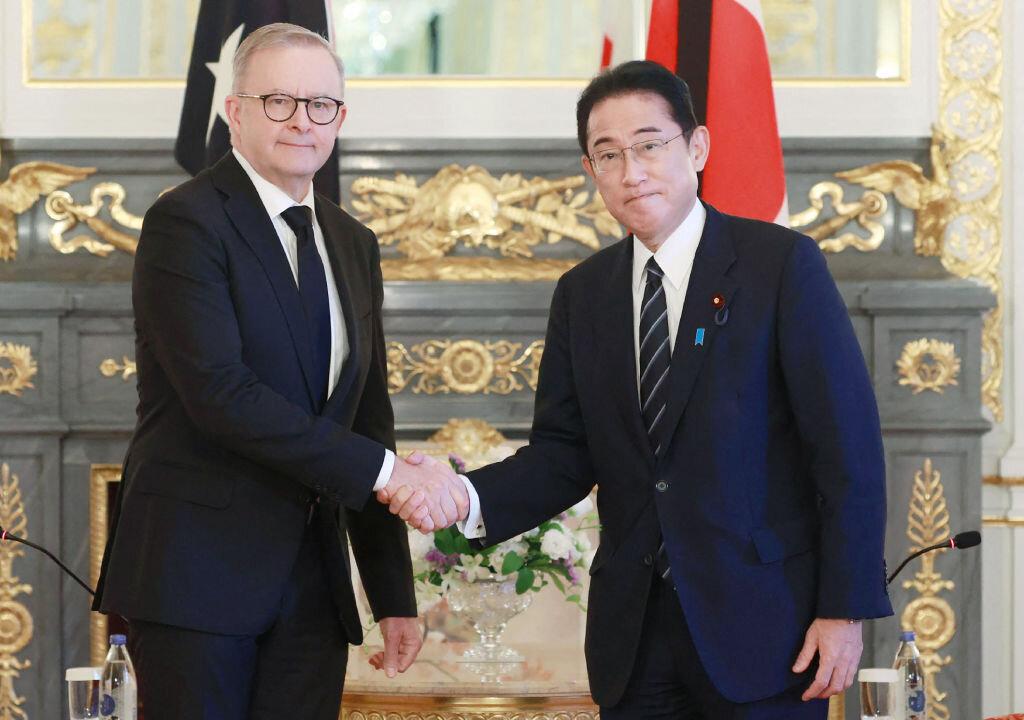The prime ministers of Australia and Japan are planning to sign a new security declaration in response to Beijing’s growing regional assertiveness and military power at an upcoming summit to be held in Perth.
Prime Minister Anthony Albanese will be welcoming Prime Minister Fumio Kishida on Oct. 22 and is expected to announce the new Joint Declaration on Security Cooperation, according to Kyodo News.





